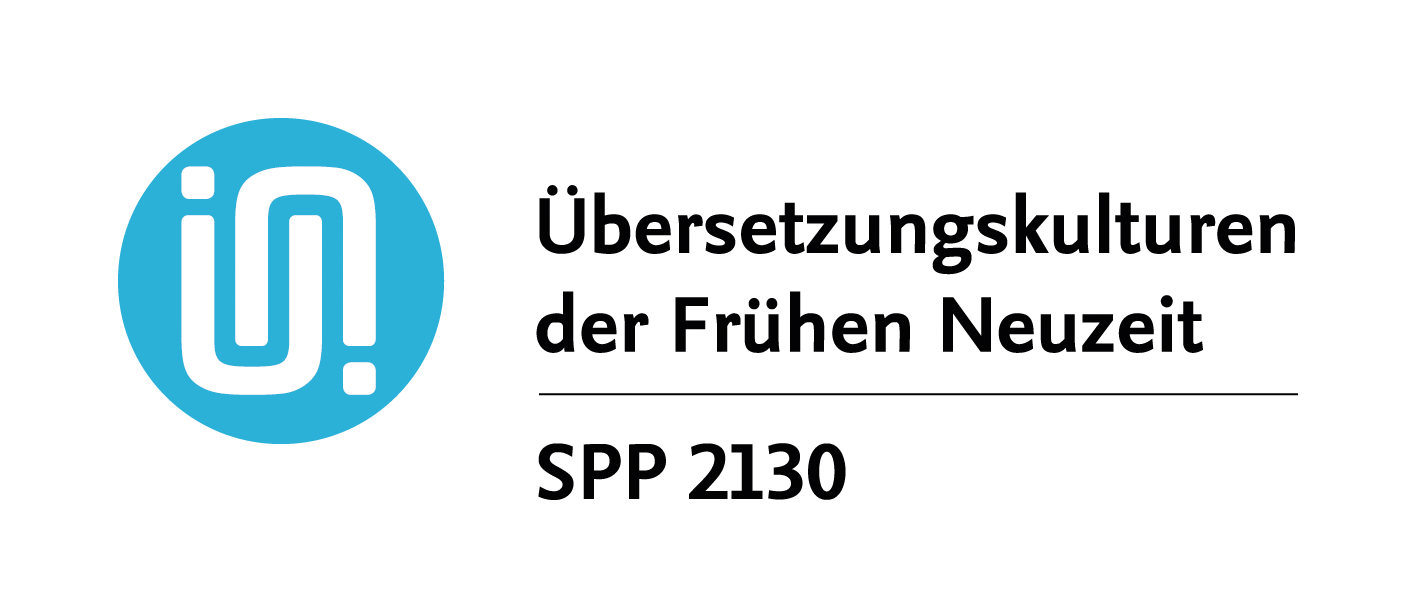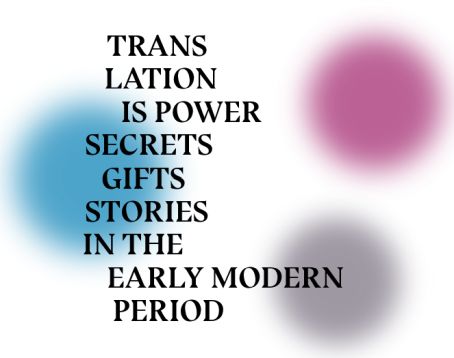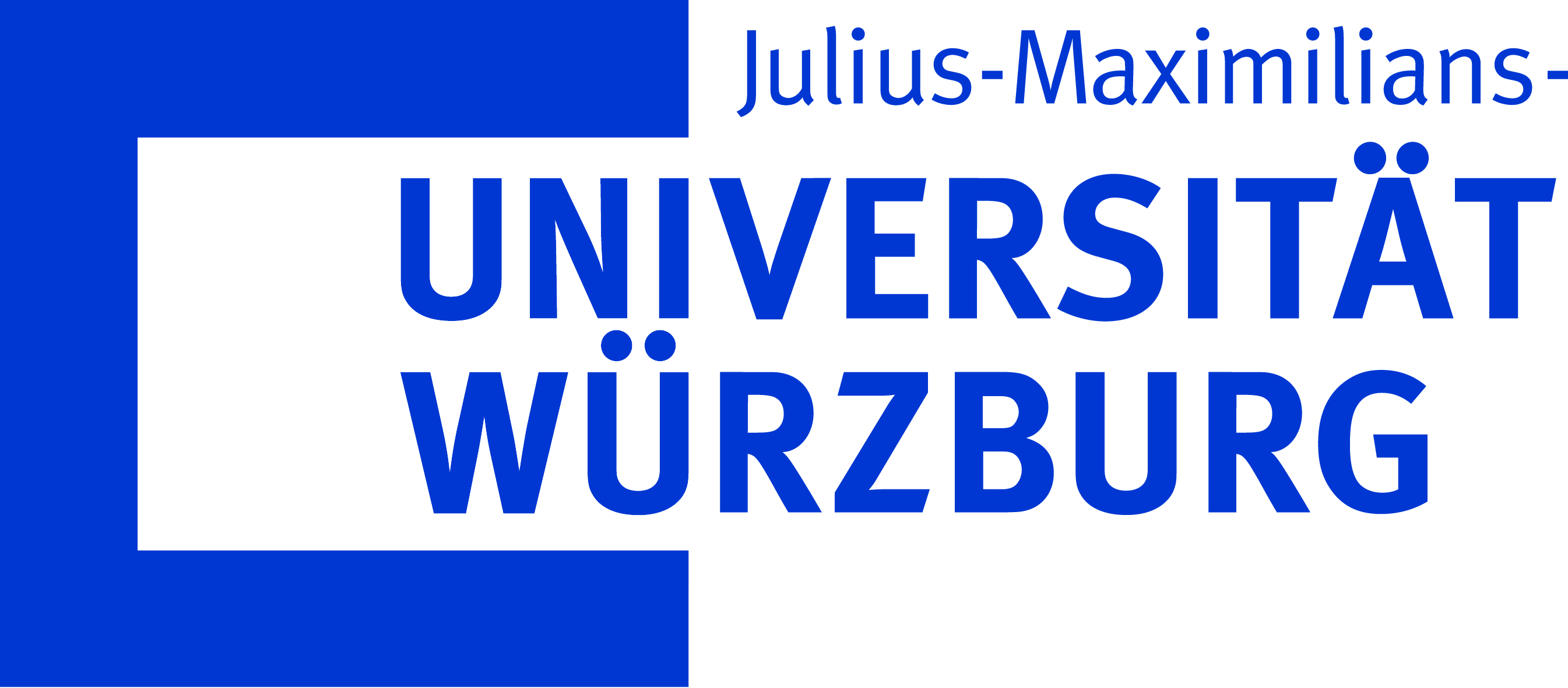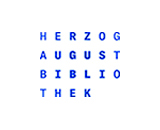Structure
Structure
The SPP 2130 offers the framework conditions for bringing together the leading experts in the fields of early modern times and translation, from all over Germany, independent of a specific research location, in an interdisciplinary research cluster.
The SPP 2130 office was located 2018-2021 at the Technical University of Braunschweig, and is currently located at the Julius-Maximilians-University of Würzburg. The office is overseen by the cluster spokeswoman Prof Dr Regina Toepfer and coordinated by Annkathrin Koppers, M.A. The office organizes the cluster events, manages the funds for the support measures, puts out the SPP 2130 newsletter and oversees the publications of the J. B. Metzler/Springer publishing company’s series Übersetzungskulturen der Frühen Neuzeit/Early Modern Translation Cultures.
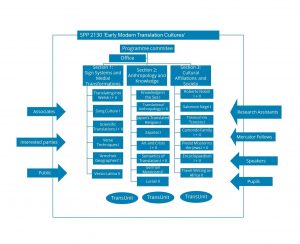
Institutional responsibility for the cluster also resides with the Herzog August Bibliothek (HAB) in Wolfenbüttel, one of the most important centres for research into the early modern period. The library not only places its abundant holdings at the cluster’s disposal, but will also serve as a venue for workshops and yearly conferences and will host Mercator Fellows.
In the first funding phase, individual projects in all fields of research into early modern times, e.g. literary and linguistic sciences, historical and cultural studies, philosophy, musicology, and inter- and transculturality research, had the opportunity to submit their applications to the German Research Foundation by November 2017. Seventeen individual projects in the fields of Celtic studies, history, Old and New German studies, Romance studies, the history of religion, art history and the history of science were selected. In accordance with their thematic focusses, these projects are divided among three sections which will be coordinated by the members of the programme committee (1. “Sign Systems and Medial Transformations” – Prof Dr Jörg Wesche, 2. “Anthropology and Knowledge” – Prof Dr Regina Toepfer, 3. “Cultural Affiliations and Society” – Prof Dr Peter Burschel).
For the second funding phase, the deadline to apply to the German Research Foundation was October 2020. 13 individual projects were selected, of which nine are extensions and four are new grants. The division into the three sections was continued.
Whereas the innovative potential of the priority programme lies in the historicization of current developments in the translation sciences, the division into sections represents added scientific value in that it provides a means of addressing overarching issues from an interdisciplinary perspective, leading to the emergence of new approaches in the areas of research into early modern times and translation. The collaboration of all participants independently of location within the framework of the annual conferences will serve to create dialogical relationships between the programme’s various analytical levels. This structure will be conducive to connections with international research as well as to receptivity for current translation phenomena and problems.
The formation of so-called TransUnits will provide a tool for the promotion of young researchers. In each TransUnit, three research assistants and fellows from different sections will work together. Regular video conferences supplemented with meetings in person will ensure that the participants engage in ongoing exchange and collaboration between the annual meetings, for example by informing one another about the progress of their work and providing one another with peer feedback. Each TransUnit will moreover realise a joint project within the three years of the programme. Funds are available to the TransUnits for events and workshops.
In the first funding phase, all SPP participants will collaborate with one another and with the HAB on the realisation of a central programme project: a virtual exhibition entitled “Translation is Power. Secrects – Gifts – Stories in the Early Modern Period”, which was opened during the 3rd annual conference.
